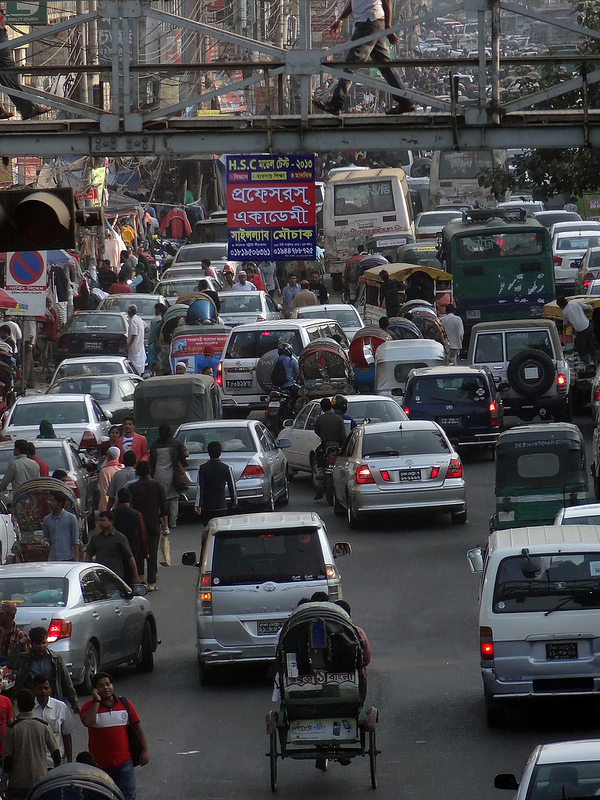"Fighting the brain drain in Bangladesh"
February 5Many Bangladeshi graduates leave the country, writes Kazi Prottoy, 20, a Correspondent from Dhaka in Bangladesh, who argues that enticing young professionals to stay means the government must tackle some significant urban problems.
It has been seen as a trend for some years now that Bangladeshi graduates almost religiously go for the prospect of leaving their homeland to complete their next level of education, and eventually settle into the countries of their choice.
Education specialists call this development by its fancy name ‘Brain Drain’. The term is usually derogatory in a sense. But in truth, most of the graduates look for opportunities to go abroad from the year they get themselves admitted. Most of the experts believe that some migratory push factors are the reason for this trend.
If we want to explain what migratory push factors are, we have to explain what factors play a role in the migration. The factors are mainly economic, social, and physical in nature, and they can usually be categorized into push and pull factors.
Push factors are those related with the area of origin, while pull factors are those that are related with the area of destination.
It would be unwise to disregard the effect of pull factors. As overseas countries like the USA, Canada and Germany offer better service, more wealth and higher employment opportunities, ambitious candidates often choose to emigrate there. It’s a good example of migratory pull factors in play. But in recent times, push factors have begun to emerge. It’s been observed that young people, who were undecided or even reluctant about leaving their home country, are now thinking about migrating. When questioned, almost all of them list the ever-growing problems of the major metropolitan areas, especially of the capital, Dhaka.
Sorowar, age 22, is a third year graduate student of North South University, a reputable University in Dhaka. He lives in Dhanmondi, while his university is situated at Bashundhara. Because of the infamous traffic jam in Dhaka city, it takes him almost one and a half hours every morning to go to his university from his home. And it takes another two hours to return in rush hours. In weekends, the traffic jam is a lot less acute and it takes him only thirty minutes to reach his university. He admits that for the sake of attending classes, wasting nearly three hours every day on the road sometimes proves to be intolerable. He has made up his mind to emigrate and he is already prepping for his IELTS exams.
Most of us might consider Sorowar to be over-reacting. But unfortunately he is not. Many of the recent graduates have taken their decision to emigrate, as they can predict that the condition of traffic jams in Dhaka city will only get worse. They do not want to start their professional life here as it would be very unproductive. The fact of the matter is, traffic jam is just one of the many push factors. Lack of economic opportunity is also a major one. Lack of services, lack of security, high crime rate and political instability also fuel the younger generation’s aspiration to emigrate.
It’s been said that migration usually happens as a result of a mishmash of push and pull factors. If the authorities are sincere enough to deal with the push factors, then the emigration rate can be radically reduced.
photo credit: william veerbeek via photopin cc
…………………………………………………………………………………………………………………
About me: I am from Bangladesh, currently a business school student. I aspire to work in the development sector, and am passionate about volunteering and activism.I write my own blog. Through my reading and writing, I am trying to find the perfect combination of business models and development issues.
I am bilingual in English and Bangla, and am seeking to be proficient in Spanish. I love sports, and also love spending time with a page-turner and a cup of coffee.
…………………………………………………………………………………………………………………
Opinions expressed in this article are those of the author and do not necessarily represent the views of the Commonwealth Youth Programme. Articles are published in a spirit of dialogue, respect and understanding. If you disagree, why not submit a response?
To learn more about becoming a Commonwealth Correspondent please visit: http://www.yourcommonwealth.org/submit-articles/commonwealthcorrespondents/
…………………………………………………………………………………………………………………





